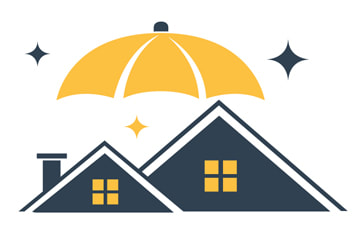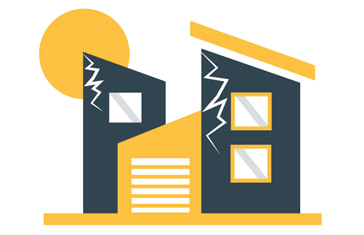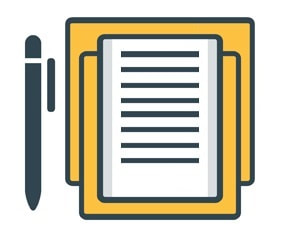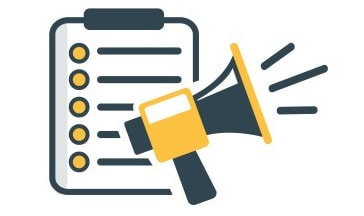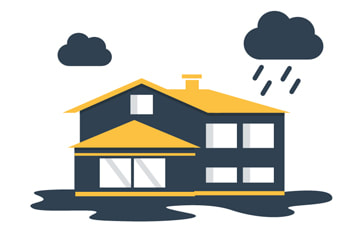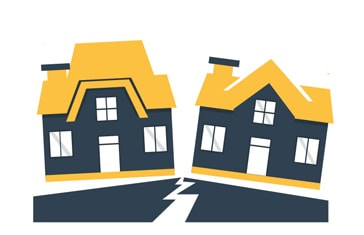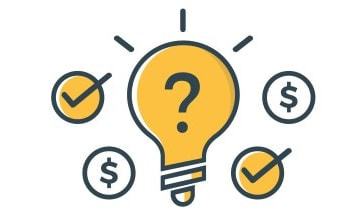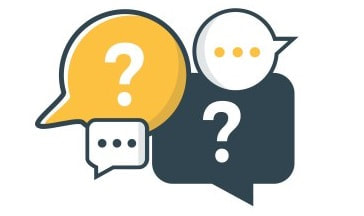The Mechanics of Defaulting on your Mortgage - The Definitive New Zealand Guide
Mortgage costs are getting higher and higher, and it's getting harder to make repayments after rolling off low-rate deals. Our guide outlines what happens if you cannot pay your mortgage.
Updated 4 February 2023
Summary
Our guide covers:
Summary
- With low incomes and relatively high cost of living relative to other developed countries, meeting mortgage repayment schedules in New Zealand can be tough in the best of times. However, it’s a particularly scary time for many New Zealanders at this point of the property/economy cycle.
- During COVID-19, the Reserve Bank of New Zealand (RBNZ) had to cut the Official Cash Rate (OCR) to record low levels to support the flailing economy. Lowering the OCR led to much lower mortgage interest rates but also had the unavoidable side-effect of inflating house prices. Many hopeful first-home buyers took advantage of these extremely low-interest rates and purchased their homes with 5%-20% deposits (translating to 5X to 20X leverage).
- However by late 2022 inflation was putting pressure on many New Zealanders which led to mortgage rates skyrocketing and put house prices under pressure - these troubles continue into today as interest rates are at record recent highs.
- Many of the first home buyers with low LVRs (and large mortgages) now have to deal with the two-fold effect of rising mortgage interest payments and dropping house prices. Many first-home buyers will be concerned about their options if they can't afford to pay their mortgage.
- Our guide explains what happens if you can't afford to meet your mortgage repayments, what options are available to you if you do end up defaulting on your mortgage, and what banks are likely to do if you default on your mortgage. We also explain must-know facts and the most frequently asked questions regarding defaulting on your mortgage.
Our guide covers:
What Happens When I Default on My Mortgage?
Mortgage default happens when a home owner fails to uphold the agreed-upon terms described in the mortgage contract they signed when taking out their mortgage with a bank or lender. Your bank will set out all the various actions and situations by which you will default on your mortgage in the mortgage contract. However, there are a few common ways to default on your mortgage, including:
Know This: Defaulting on your mortgage can result in one or multiple different processes being started that ultimately lead to the house being repossessed. However, the good news is the bank is unlikely to do so unless there is no other option.
- A homeowner stops making monthly mortgage payments (the most common option).
- Not paying outstanding council property rates (councils will contact the bank to get this paid).
- Not paying any relevant lender mortgage insurance (LMI) or other forms of insurance owed to the bank.
- Transferring the property title to a new owner without the bank's notification (which may impact the lender's claim and right on the property).
- Damaging the property (and the subsequent value of the home.)
Know This: Defaulting on your mortgage can result in one or multiple different processes being started that ultimately lead to the house being repossessed. However, the good news is the bank is unlikely to do so unless there is no other option.
The Mortgage Default Process
Once you've defaulted on your mortgage, the formal bank procedure is to go through the process of legally requiring you to pay back the mortgage, and if you're unable to do this, the bank will then look to foreclose on your home to recover the mortgage debt owed. However, this is the "formal" mortgage process, and a bank is likely to follow this process as a last resort. We've listed a few of the steps that mortgage holders may go through if they miss their mortgage payments:
Step 1 - You start to miss one (or multiple) mortgage payments.
|
Step 2 - If you continue to miss payments, the bank may issue a letter of demand.
|
Step 3 - The bank will issue a formal notice under the Property Law Act 2007 (PLA).
|
Step 4 - The bank/lender triggers an acceleration clause/provision.
|
Step 6 - Your house goes into foreclosure/mortgagee sale.
|
What are The Top Things to do to Avoid Defaulting?
With the formal mortgage default and foreclosure process outlined above, there are multiple steps you can take to keep this process from happening:
Evaluate your finances and financial situation before you end up defaulting on mortgage payments.As soon as you begin having issues (or predict you'll likely run into issues) meeting your mortgage payments, come up with a potential plan to try and meet these increased mortgage payments. This scenario is an increasingly significant problem, with the official cash rate increasing over the last 12 months, leading fixed and variable mortgage rates to increase from around 3% to north of 7%+. Higher mortgage rates lead to significantly higher mortgage payments each month.
While banks will have stress-tested New Zealand mortgage applicants at around 7% (when rates were 2%) to ensure they could handle mortgage payment increases, other unexpected factors may influence a household's income and expenses. With all this in mind, evaluating your current income and spending habits is important to ensure you don't miss any mortgage payments. |
Look into refinancing your mortgage.If you think you're likely to miss a few payments and may default on your mortgage, consider refinancing. When you refinance your mortgage, you take out a new mortgage to pay off the old one. Your new loan may come with a lower interest rate if you take advantage of discounted offers or alternative mortgage brokers, but with the rise in the official cash rate, this is unlikely.
However, note that borrowers in mortgage default won't qualify for refinancing. So if you want to refinance your mortgage, you'll have to do so before you miss mortgage payments. |
Work out a plan with your bank or mortgage lender.If you can predict you're likely to miss a few payments, contact your lender as soon as you can and let them know what's going on with the financial situation that is likely to cause you to miss your mortgage payments and when you expect to get back on track with your repayment schedule. Almost all lenders will want to work with you to start repayments again if you let them know well in advance. Remember, lenders don't want to foreclose on homes. Most lenders only do so if there are no other alternatives left.
|
Talk to your bank or mortgage lender about forbearance.Your lender might agree to forbearance on your mortgage, meaning you get to keep your home whilst trying to make ends meet. Mortgage forbearance is a binding mortgage settlement made between you and your lender. During a forbearance, the bank/lender promises not to foreclose on your property and will give you a fixed number of days/months where payment is paused or temporarily reduced. After this period, you'll be required to continue your loan payments and repay the balance you would have had to pay before starting the forbearance agreement.
This option can be a potential short-term solution for many homeowners if they're either unemployed for a short time or facing a temporary income reduction. Be sure to use the grace period to increase savings and plan how to pay the full amount once the forbearance period ends. There may be payment modifications post-forbearance, so read the forbearance contract closely. |
Decide on a new repayment plan.Another alternative is to come up with a new repayment plan. Generally, this is different from forbearance, as you won't be granted a grace period where repayments are paused or temporarily reduced. Instead, you'll restart your regular personal loan payments and pay an additional quantity to make up the balance you owe. However, it is also possible to enter a reimbursement plan after forbearance.
To start a prepayment format, look at your finances and decide how much you can afford to pay down in addition to your standard mortgage payment. Then reach out to your bank/lender and discuss how you'll make up the shortfall balance. Your bank/lender will work with you to create a compensation plan that fits your budget. |
Consider a modification to your mortgage.A mortgage modification is intended to provide permanent relief to Kiwis having trouble making their mortgage payments and is a post-forbearance option that your bank may consider. It can take many different forms:
|
Consider selling your home to pay off the mortgage.If you know you can no longer afford your weekly mortgage payments and your outstanding mortgage balance is less than you could currently sell your house for, it could be worth considering selling your property (especially if you think prices will fall in the future, putting your home at risk of entering a negative equity situation). Because your home is worth more than the mortgage, you'll be able to take any additional equity from your home sale in the form of cash/savings to reinvest somewhere else. In addition, selling your home is one way to ensure you don't default on your debt and damage your credit report.
If your house is worth less than you owe (meaning you're underwater and in negative equity), you can still consider selling your home. However, you'll be selling your home for less than the amount owed to your bank/lender, meaning you'll still owe an outstanding balance. If you pursue this, you'll need to get your bank/lender to agree to these terms and create an additional loan (with new interest rates and loan terms) after the house sale is completed. While not ideal, selling your property early can be one way to get out of a sticky situation if you know you likely won’t earn enough income to service the rising mortgage interest payments in future. |
What are Some of the Other Most Common Causes of Mortgage Default?
Aside from struggling to meet rising mortgage payments due to increasing interest payments, there are other situations where mortgage defaults occur. The three most common causes of mortgage default (unrelated to meeting rising mortgage interest payments) include:
Divorce or separation.Divorce or relationship breakdown with a de facto partner is a common reason for New Zealanders defaulting on their mortgage. This scenario is because a divorce can be extremely expensive, involving thousands of dollars of legal expenses involved in the process, taking on half of any joint debts, liability for any unpaid payments in your name and taking on fees like insurance that a partner may have until now covered.
Children make divorce significantly more expensive and can further increase mortgage default risk. Maintenance payments can also greatly impact the financial position of the spouse that doesn't have custody of the kids. Meanwhile, the partner who has custody faces the added cost of providing for these children on their current income. Additionally, applying for single-parent benefits takes time to get approved. |
Involuntary unemployment or sudden illness.Involuntary unemployment or sudden illness (something that stops you from working unexpectedly) can lead to mortgage default. Finding an alternative income source can be extremely difficult when your income suddenly drops overnight. Regardless of your employment, the bank that lent you money will still expect you to meet your weekly or monthly mortgage payments.
In particular, New Zealanders that live in non-urban areas (such as Auckland or Wellington) are the most at risk of default because those areas typically have fewer employers, which may mean it takes longer to find another job. |
A death in the family.A significant financial burden often accompanies the life-changing grief that comes from a death in the family (either through a loss of income or increases in expenses due to the deceased person not covering these costs anymore). In addition, the increased costs of things like a funeral carrier, burial or cremation will also impact your finances. Finally, household income may drop by half or more, for example, shifting a double-income household into a single-income household if the person who passed away was a partner. This shift to a single-income household can mean you cannot meet the mortgage's interest payments.
If this has happened, you should get in touch with your bank/lender as soon as possible and explain the situation to them. |
Must-Know Facts about Defaulting on Your Mortgage
Given increases in the OCR, banks will be much stricter on stress tests and lending.Banks typically have to meet strict responsible lending regulations when they lend money. As part of these regulations, they factor in possible interest rate increases into their lending decisions. The more likely the Reserve Bank of New Zealand is to raise interest rates, the higher the artificial interest rate a bank will "stress test" a mortgage applicant.
For example, if a mortgage lender approved your mortgage application when interest rates were around 2%, they would have stress tested your income levels and ability to pay off your hypothetical mortgage if interest rates rose to 6% to 7%. The bank would need certainty that you would still be able to cover your mortgage repayments if interest rates were much higher than the current carded rates. Whilst there's no "one standard" stress test that all banks use, the interest rate used to test mortgage applicants is always considerably higher than the current market interest rate. For example, current interest rates are sitting at around 7% - 8% for both floating and variable rates, meaning a bank assessing mortgage applications now will likely stress test at closer to around 10%. Generally, this will lead to a significant drop in the number of mortgage approvals, given how much income you'll need to earn to afford 10% interest rates on mortgages. |
Higher OCR rate hikes don’t always lead to 100% higher mortgage rates.While OCR hikes almost always lead to higher mortgage rates, banks may not pass on 100% of the rate hike to end-consumers. For example, if the OCR was increased by 75 basis points (0.75%), this doesn't mean that banks will raise all rates instantly by 75 basis points. Some banks will pass on the full increase, but others may not do this (or they may raise more than the amount the RBNZ has raised).
Additionally, the timing of when the banks pass on the OCR hikes will also vary from bank to bank. For example, some banks preempt what the RBNZ will likely do in the upcoming meeting and will either raise or lower mortgage interest rates in anticipation of this announcement. With this in mind, it's important to forecast where mortgage rates are likely to sit in 12-24 months and whether your income and financial situation can handle these increases in mortgage payments. If you're having trouble with your current financial obligations (such as paying off your mortgage), you'll need to prepare and plan ways to meet the anticipated increases in mortgage rates. Our guide to how to pay your mortgage faster has more details. For our definitive guide on how to deal with increasing interest rates and mortgage payments, visit our guide here. |
Don’t be blindsided by all the other ways you can technically default on your mortgage.As we've listed above, several ways you can default on your mortgage aren't always obvious. However, educating yourself about the situations where you might be at risk and planning in advance for them will make you far less likely to default on your mortgage accidentally.
|
If in doubt, contact your bank immediately to ensure that they don’t start a formal mortgagee process.The earlier you contact the bank, the more likely they'll be able to provide help and clarity. For example, if you know you'll be late/miss a mortgage payment, you should contact your bank immediately. If you start discussions with your bank in advance (before you default on your mortgage) and work on a design to get your payments up-to-date, you'll be able to manage their expectations and get back on track before your lender accelerates the debt.
|
Any defaults or modifications to an existing mortgage or debt will impact your credit score.Any mortgage default or modification will show up on your credit score, impacting your ability to refinance or buy property. Whilst defaults, and modifications to existing mortgages look far better on your credit report than a foreclosure, it's best to try and avoid these things altogether.
|
Our Conclusion
- We are in unsettling times and many New Zealanders will be anxious about rising interest rates, especially at this point in the property cycle and economy.
- To provide more clarity and hopefully ease some concerns, this guide has explained what happens if you can't afford to meet your mortgage repayments, what options are available to you if you do end up defaulting on your mortgage and what banks are likely to do if you end up defaulting on your mortgage.
- Defaulting should be avoided at all costs where possible. While banks are likely to be slow to go through the mortgage default process, that doesn’t mean they won’t do so if the conditions present themselves. All New Zealand homeowners with mortgages should be aware of what happens in the unfortunate event that a bank starts the formal mortgage default process.
- The best approach is to keep communicating with your lender - they need to hear from you and you'll need to be honest. Don't hide from any issues - be upfront and own the situation and work with your lender to get back on track.
Frequently Asked Questions
What can I do if the mortgage default process has been started/issued?
If you're at any stage of the process, the first step should always be to contact your bank to explain your situation and understand your options. Your bank will want to try and assist you in any way possible, as it's in their interest for you to continue paying off your mortgage. So you must not ignore the problem - it won't go away and will only get worse.
What are some signs that I might get into mortgage stress and need to reassess my options?
While there's not a single definition for mortgage stress, some generalised figures are floating. However, some signs that you could be under mortgage stress include the following:
- More than 50% of your pre-tax income is going towards your mortgage.
- You live paycheque to paycheque and struggle to cover your bills and mortgage payments at the end of the month.
- You've recently lost your job or are about to lose your job (either through a fixed-term contract ending or redundancy/layoffs).
- You've had to borrow, take out a personal loan or use credit cards to cover living expenses.
- Your mortgage is interest only, and you have minimal equity in the property.
- Financial stress is actively impacting your mental health, relationships and professional life.
What will happen if I miss a mortgage repayment?
If you think you might miss an upcoming mortgage payment (and it's a non-systemic one-off scenario), it's likely not the end of the world. The best thing to do is contact your lender, let them know your situation and discuss options. They'll likely be supportive and get you to cover the payment in the following months. A bank will unlikely start the mortgage default process over one missed mortgage payment.
However, if you miss a mortgage payment (or several) without explanation, your lender will typically try to get in contact and understand why you've missed your monthly payments. If they don't hear back from you after repeated attempts to contact you, they'll likely proceed with the technical mortgage default process.
Even if you catch up with your missed mortgage payments, you may be charged various fees for missing the mortgage payment (or your credit score may be impacted).
However, if you miss a mortgage payment (or several) without explanation, your lender will typically try to get in contact and understand why you've missed your monthly payments. If they don't hear back from you after repeated attempts to contact you, they'll likely proceed with the technical mortgage default process.
Even if you catch up with your missed mortgage payments, you may be charged various fees for missing the mortgage payment (or your credit score may be impacted).
What should I do if I can’t pay my mortgage?
If you're concerned that you can no longer pay your mortgage, get in touch with your bank or lender. Contact them as quickly as possible, as this will mean they are more likely to support you and provide you with a wider range of options (before the mortgage default process is started). Some potential options may include the following:
The above are some examples of solutions the bank may provide to you. But ultimately, it will come down to the risk appetite and flexibility of your bank/lender and their policies around mortgage flexibility. Additionally, most of the above options have the negative impact of increasing the interest you'll likely pay on the life of the mortgage.
- Extending the life of the mortgage to reduce repayment amounts: some banks will allow you to add additional years to the mortgage resulting in a reduced repayment amount each month. This switch can ease pressure on you in the short run but result in you paying more interest in the long run.
- Access excess funds in an offset account: if you have an offset account (a bank account set aside to support your mortgage loan), it could be possible to use these funds to increase repayments. However, this could make the term of your loan bigger and the amount of interest you may have to pay.
- Ask for a repayment holiday: you may also be able to put your mortgage repayments on hold. This option was particularly popular (and banks were very lenient) during COVID-19 when the economy shut down overnight, and many employers had to deal with volatile payrolls. However, ultimately, this can substantially increase the amount of interest you pay over the life of the mortgage.
- Swapping to interest-only repayments: For those that aren't already on interest-only repayments, switching to interest-only repayments for a short period can substantially reduce the amount of money you need to pay each month. However, there may be fees associated with this, and the amount of interest you pay on the life of the mortgage will be higher.
- Refinance your mortgage with a new lender: another alternative could be to refinance your existing mortgage with a new lender. This scenario means that the new lender will pay off the old lender, and you'll owe the new lender the balance by which the new lender paid the old lender. Many New Zealanders do this if they get a more competitive interest rate on the new mortgage. However, it's important to remember that fees are likely associated with refinancing with another lender. Your bank may also charge break costs if you choose to swap lenders.
The above are some examples of solutions the bank may provide to you. But ultimately, it will come down to the risk appetite and flexibility of your bank/lender and their policies around mortgage flexibility. Additionally, most of the above options have the negative impact of increasing the interest you'll likely pay on the life of the mortgage.
Will the banks sell my house if I can't pay my mortgage?
In the worst-case scenario where you and the bank aren't able to agree, the answer is yes; your lender may force you into a sale via mortgagee sale for them to get the value of the mortgage back. If the mortgagee sale doesn't satisfy the mortgage balance, you'll be liable to make up the shortfall, resulting in additional debt. However, it's important to note that this is likely a resort for the bank. As mentioned above, plenty of viable solutions and compromises can be found. The most important thing is establishing a dialogue with your bank as early as possible.
I've been through the mortgagee sale process, and my real estate agent/bank got far less in the sale than it should have. Is this legal for them to undersell the house?
Generally, a bank is aligned with your interests and wants the highest price possible on the mortgagee sale (so they can get the initial mortgage amount back). However, a bank is only contractually and legally obligated to get a "reasonable" price for the property relative to the valuation. This valuation is subjective and likely volatile, depending on what the current property market is doing.
If you feel you’ve been short-changed, you can file a formal complaint against the registered valuer of your property to the Valuers Registration Board. Generally, the bank that pushes on with the mortgagee sale doesn't have to wait for the "ideal time" to sell the property, as they've already triggered the legal mortgage default process. Therefore, a mortgagee sale that generates proceeds less than the current market value of the property usually doesn't result in a breach of the bank's obligation to get the best "reasonable" price possible.
If you feel you’ve been short-changed, you can file a formal complaint against the registered valuer of your property to the Valuers Registration Board. Generally, the bank that pushes on with the mortgagee sale doesn't have to wait for the "ideal time" to sell the property, as they've already triggered the legal mortgage default process. Therefore, a mortgagee sale that generates proceeds less than the current market value of the property usually doesn't result in a breach of the bank's obligation to get the best "reasonable" price possible.
Related Guides

